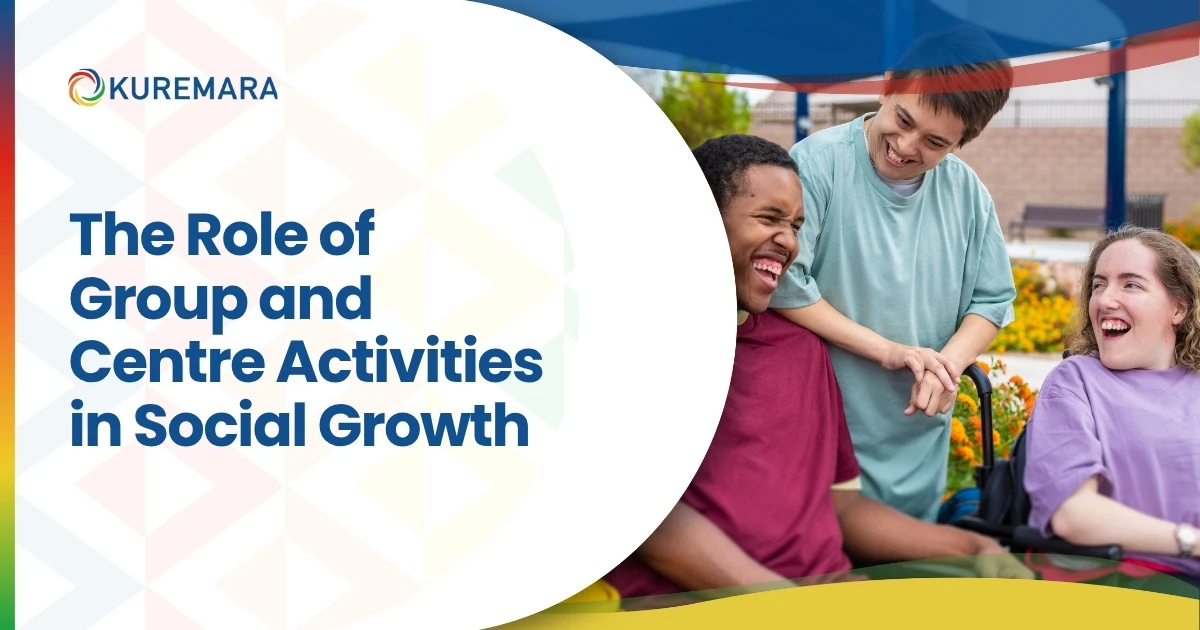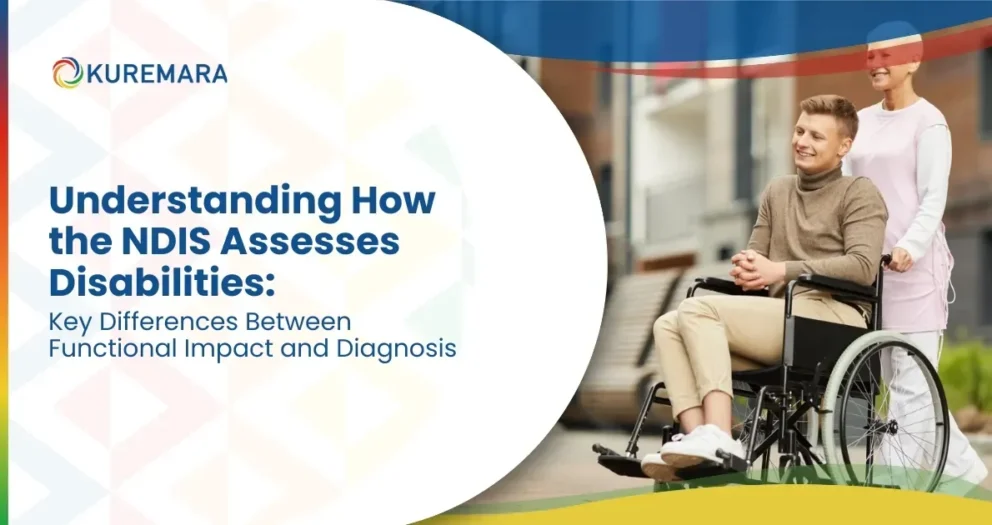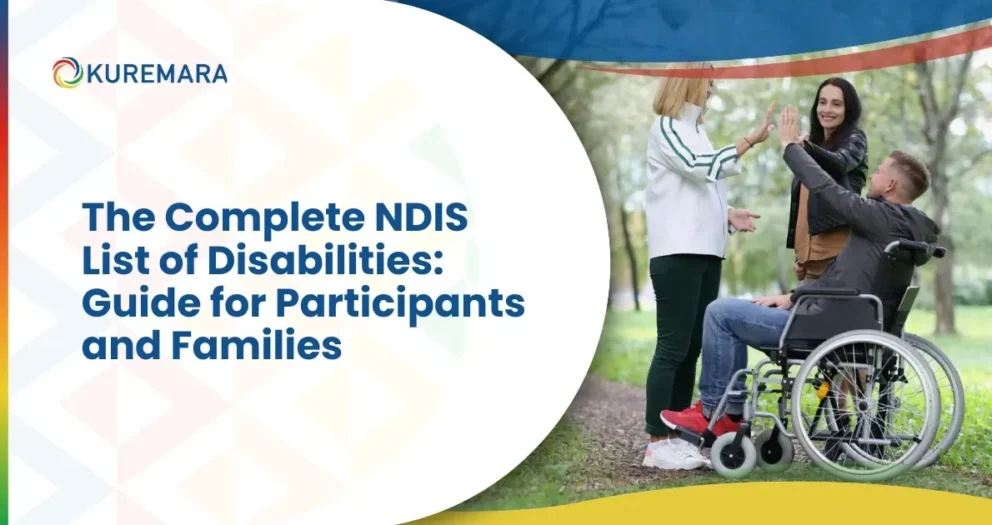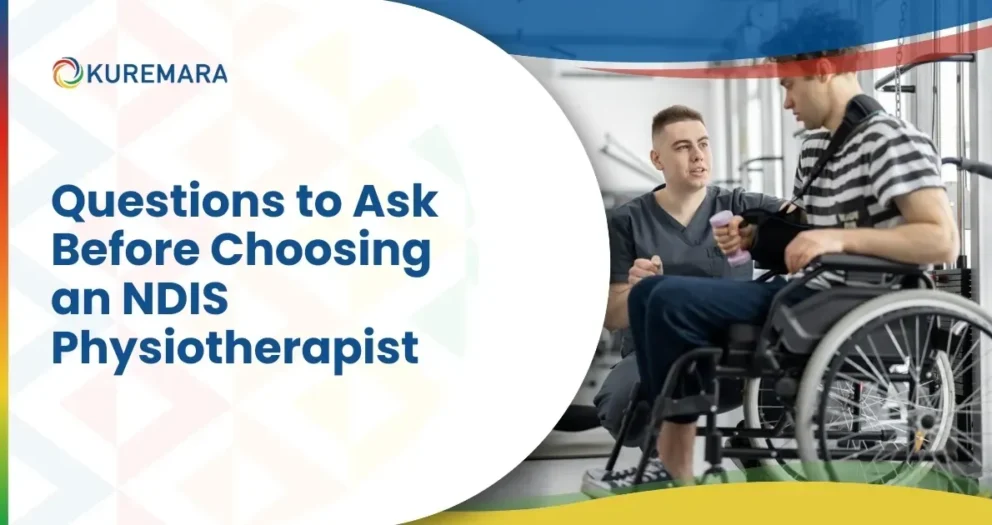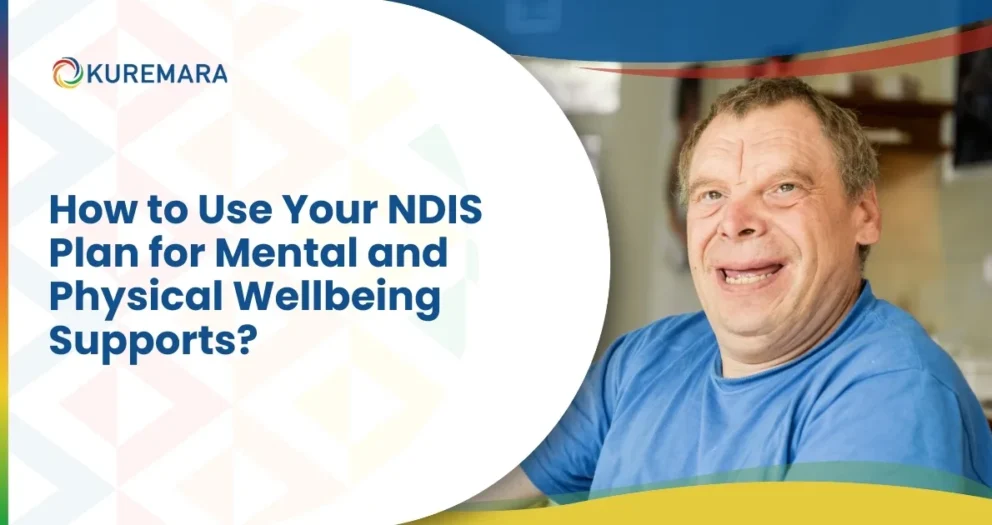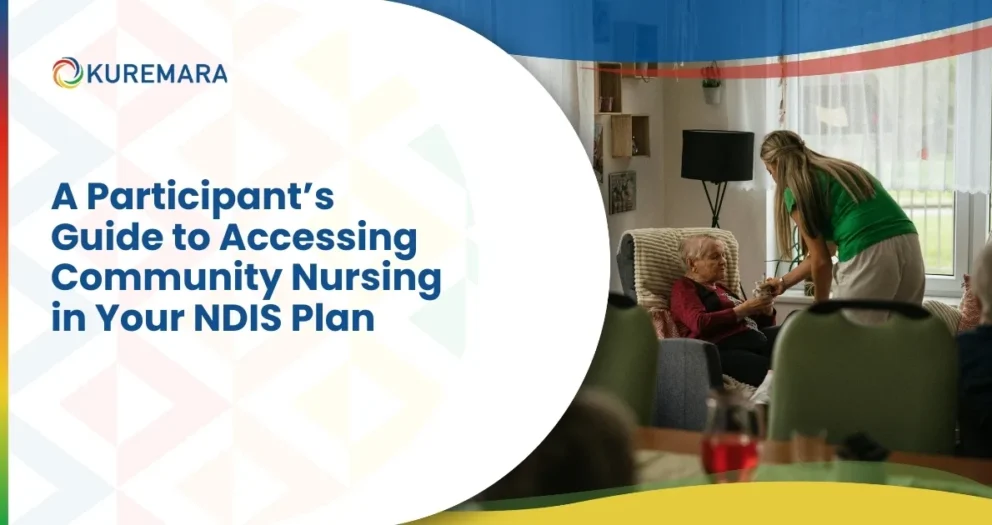Introduction
Social connections are more than just friendships, they form the foundation of independence, wellbeing, and confidence. For many people living with disabilities, finding the right opportunities to connect with others in safe and supportive environments can be life-changing. This is where group and centre activities come into play.
Within the framework of the NDIS-funded activities, group programs and activity centres provide a platform for participants to engage, learn, and grow. These activities are not only about recreation; they’re about building life skills, fostering belonging, and improving overall quality of life.
In this blog, we’ll explore how group and centre-based programs contribute to social growth, the variety of activities available, and how providers like Kuremara help participants make the most of these opportunities.
Understanding Group and Centre Activities
Group and centre activities refer to structured programs designed for individuals with disabilities to come together in a shared space, physical or community-based, and participate in meaningful experiences.
Some examples include:
- Art and craft workshops.
- Cooking classes.
- Exercise and sports programs.
- Digital skills training.
- Social outings like movies, bowling, or park visits.
These activities are offered at a dedicated activity center or organised as community-based programs. Unlike one-on-one supports, group sessions focus on interaction, teamwork, and shared experiences. They are an integral part of NDIS group activities, helping participants achieve their goals while connecting with peers.
Why Social Growth Matters in Disability Support
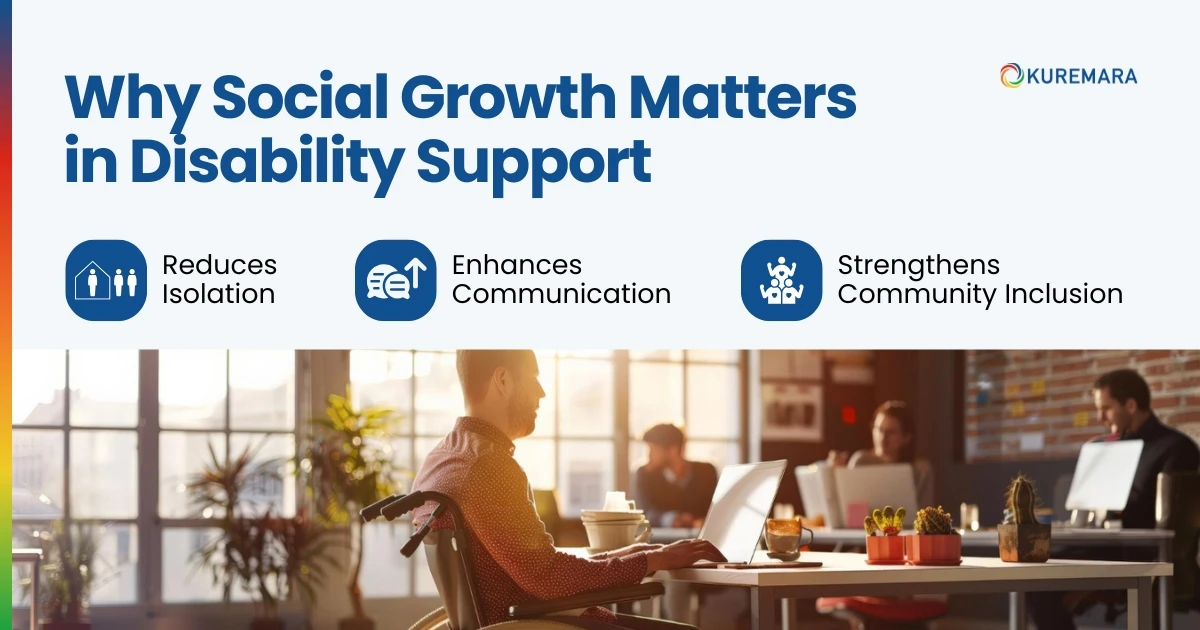
Developing social skills is a key step towards independence. For people with disabilities, social participation often requires extra support, but the benefits are profound.
1. Reduces Isolation
Many participants experience social isolation due to mobility or accessibility challenges. Group activities provide an outlet to connect with others who share similar journeys.
2. Enhances Communication
Regular interactions help participants build confidence in expressing themselves, whether through speech, gestures, or other communication methods.
3. Strengthens Community Inclusion
Being part of social activities creates a sense of belonging and inclusion in the wider community.
In essence, social growth is not just about “being social”; it is about empowerment, wellbeing, and the ability to contribute meaningfully to society.
The Impact of Group Activities on NDIS Participants
a. Emotional and Mental Wellbeing
-
- Group activities promote positive moods and reduce feelings of loneliness.
-
- They provide a sense of purpose and structure in daily life.
-
- Participants often report improved confidence and resilience when engaging in shared tasks.
b. Physical Health
-
- Recreational activities like group walks, sports, or dance classes keep participants active.
-
- Movement-based sessions help with mobility, coordination, and overall fitness.
-
- Physical activity in a group setting often feels less like “exercise” and more like fun.
c. Skills Development
-
- Group settings teach cooperation, teamwork, and problem-solving.
-
- Activities such as group cooking foster practical life skills like planning and budgeting.
-
- Recreational activities encourage decision-making, independence, and leadership.
Together, these benefits make NDIS group activities an essential tool for holistic growth.
Top Group Activity Ideas for Social Connection
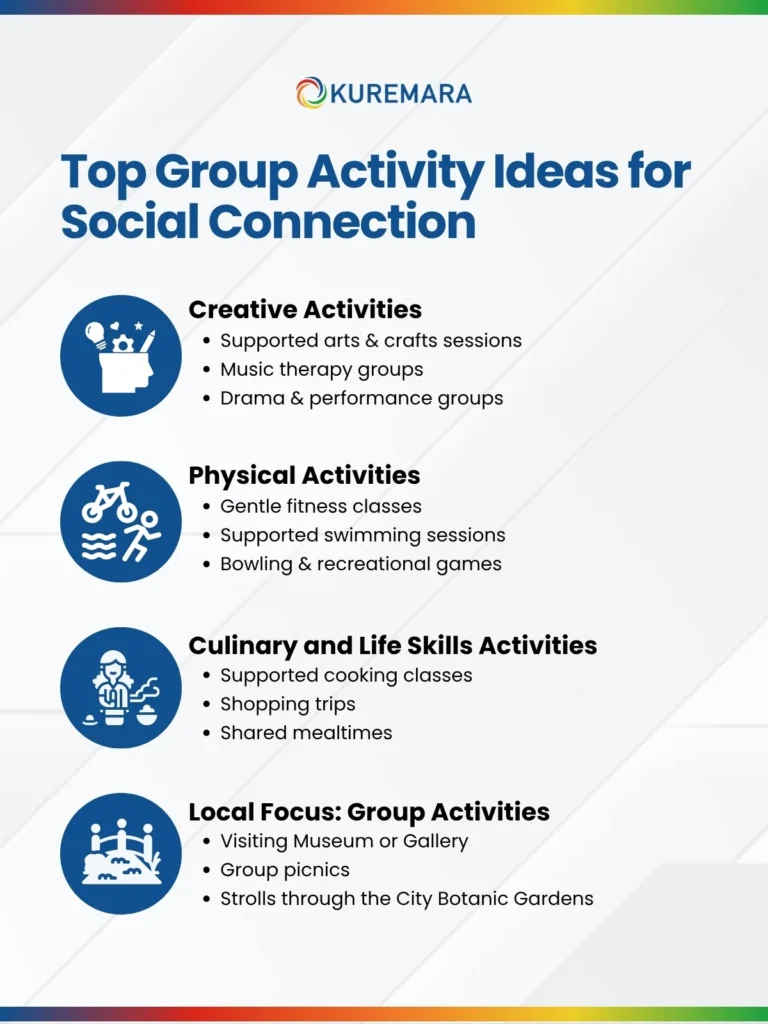
Group and centre activities can be tailored to suit all interests, abilities, and goals. The best part is that they’re flexible, participants can choose activities that inspire them, while support workers adapt sessions to individual needs. Here are some of the most popular group activity ideas that encourage both fun and social growth:
1. Creative Activities
-
- Supported arts and crafts sessions where participants can explore painting, sculpture, or DIY projects in a safe and encouraging environment.
-
- Music therapy groups that bring people together through rhythm, sound, and song, fostering relaxation and communication.
-
- Drama and performance groups where participants learn confidence, expression, and teamwork while having fun on stage.
Creative activities are powerful tools for self-expression and emotional well-being. They also open opportunities for participants to showcase their talents at community events or exhibitions.
2. Physical Activities
-
- Gentle fitness classes designed for all ability levels, supporting mobility, strength, and overall wellbeing.
-
- Supported swimming sessions, which combine exercise with relaxation and are excellent for building motor skills.
-
- Bowling and recreational games, where participants can enjoy competition, teamwork, and laughter in a supportive environment.
Engaging in physical recreational activities helps improve health while making social participation more enjoyable and less intimidating.
3. Culinary and Life Skills Activities
-
- Supported cooking classes where participants learn how to prepare meals together, reinforcing independence and teamwork.
-
- Shopping trips that teach budgeting, planning, and decision-making in real-world settings.
-
- Shared mealtimes that encourage conversation, connection, and the joy of eating together.
These life-skill activities not only improve independence but also provide practical knowledge participants can take into everyday life.
4. Local Focus: Group Activities in Brisbane
Brisbane offers a wide variety of group activities Brisbane participants can enjoy. Local outings might include:
-
- Visiting the Queensland Museum or Gallery of Modern Art for cultural enrichment.
-
- Group picnics at South Bank Parklands, which combine relaxation with socialisation.
-
- Strolls through the City Botanic Gardens, perfect for fresh air, gentle movement, and conversation.
These NDIS funded activities help participants feel connected to their community while practising skills in real-world environments. By integrating both structured and recreational experiences, NDIS group activities make it possible for participants to grow socially while having fun.
The Role of Activity Centres in Building Social Connections
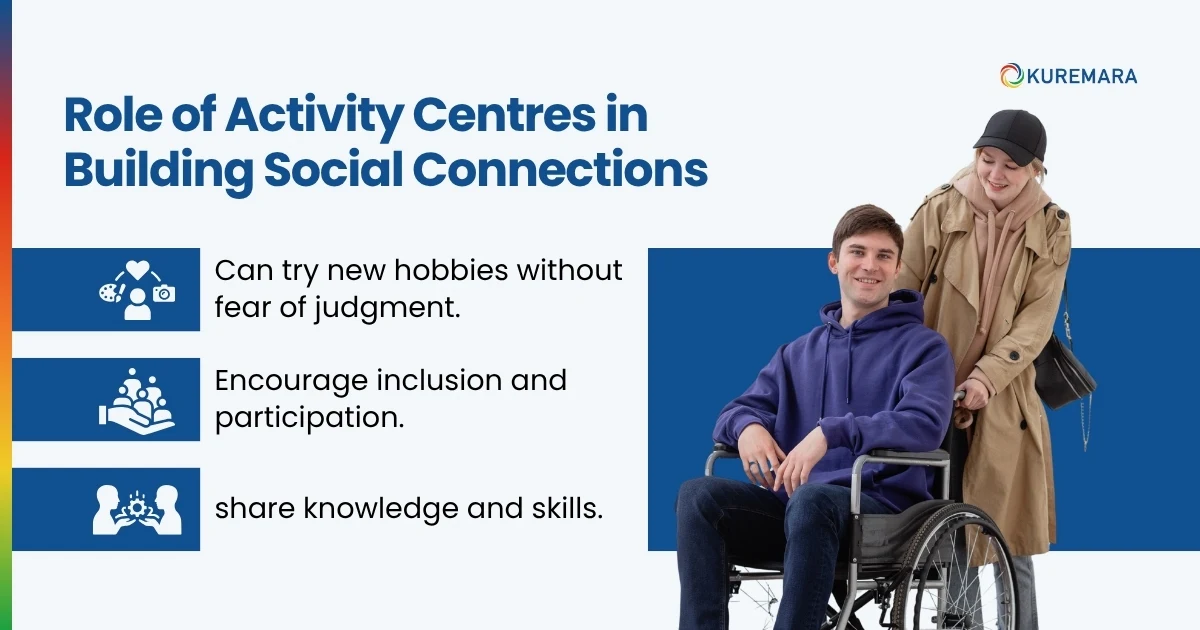
An activity center acts as a safe and structured environment for participants to explore group activities. These centres are more than just venues; they are social hubs that foster connection and personal growth.
At activity centres:
- Participants can try new hobbies without fear of judgment.
- Support workers encourage inclusion and participation.
- Peer-to-peer learning takes place naturally as participants share knowledge and skills.
For families, activity centres provide peace of mind, knowing their loved ones are engaged in supervised, purposeful activities that contribute to their personal goals.
Visit our Activity Centre to see upcoming group sessions and programs.
How NDIS Funds Group and Centre-Based Activities
Many participants wonder if group activities are covered under their NDIS plan. The answer is yes, depending on individual goals and funding categories.
NDIS-funded activities typically fall under:
- Increased Social and Community Participation
- Core Supports Assistance with social, community, and recreational activities
This means that activities such as art classes, sports, or day trips can be claimed under NDIS if they align with the participant’s goals. For example, a participant working on improving communication may be encouraged to join a group workshop where interaction is key.
Providers like Kuremara assist families in navigating these categories and ensuring that group participation is accessible and beneficial.
Group Activities at Kuremara
At Kuremara, we believe social growth is just as important as personal independence. Our NDIS group activities and activity centres are designed to:
- Encourage connection and inclusion.
- Support individual goals while building shared experiences.
- Provide safe, fun, and enriching opportunities across Brisbane, Melbourne, and Sydney.
Examples of what we offer:
-
- Cooking and nutrition workshops.
-
- Fitness programs tailored to ability levels.
-
- Art, music, and creative classes.
-
- Recreational outings and community participation programs.
Explore more about our Community Access services, which connect participants to meaningful experiences, and discover how our Supported Independent Living (SIL) services complement group activities by helping individuals build practical skills for greater independence.
By offering a blend of group, community, and home-based support, Kuremara ensures participants have every opportunity to thrive.
Tips to Make the Most of Group Activities
1. Be open to trying new things – Step out of your comfort zone.
2. Set personal goals – Know what you’d like to achieve (e.g., improving confidence, making friends).
3. Communicate preferences – Let support workers know your likes and dislikes.
4. Build connections – Use activities as an opportunity to make lasting friendships.
5. Reflect on progress – Regularly assess how these activities are helping you grow.
Conclusion
Group and centre activities are more than recreational pastimes; they are stepping stones to greater independence, wellbeing, and social growth. By engaging in these programs, participants gain valuable skills, reduce isolation, and create meaningful connections that enrich their lives.
At Kuremara, we’re proud to support participants across Australia with a wide range of NDIS funded activities designed to inspire growth, confidence, and community inclusion.
Ready to take the next step? Contact Kuremara today and discover how our group and centre-based activities can support your NDIS journey.
FAQs
1. What types of group activities are covered by the NDIS?
The NDIS may fund activities like art workshops, fitness programs, social outings, and educational sessions under community and social participation categories.
2. How do group activities support social skills development?
By encouraging interaction, teamwork, and communication, participants naturally build social confidence.
3. Are recreational activities part of NDIS-funded supports?
Yes, recreational activities can be included if they align with a participant’s goals.
4. Can I join group activities in Brisbane with Kuremara?
Yes, Kuremara offers a variety of group activities Brisbane participants can join, from creative sessions to outdoor excursions.
5. How do activity centres help NDIS participants build independence?
Activity centres provide a safe and structured environment where participants can develop skills, make friends, and achieve goals through guided group programs.
 care@kuremara.com.au
care@kuremara.com.au
